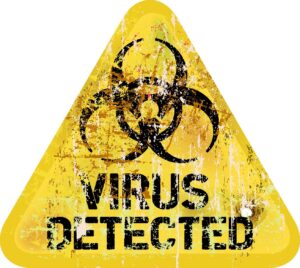Post-traumatic Effects of Covid19

Working as a clinical psychologist and psychoanalyst throughout the past year, I’ve noticed a few things about this pandemic in my practice and beyond that have convinced me that many or most of us have been traumatized to one degree or another. Using the DSM as a reference, one reason post-trauma occurs is we are in danger of losing our lives and/or people we love are in danger of losing theirs. With this criteria in mind, we’ve certainly lived for the past year with enduring fears of death and dying supplemented by the deaths and dying of people in our families and people we know. The magnitude of covid19 related deaths have been shocking and continuous.
I’ve noticed that people in my practice respond differently to the ongoing threat of illness and potential death as a post-trauma consequence of unrelenting potential viral contagion with unpredictable consequences. For example, I have treated patients in the past year that were too fearful to leave their homes. Telephone sessions were used to help them manage their fears and dispel the irrational paranoid limitations they imposed on themselves and members of their families. The fear that coronavirus was everywhere and on everything created a crisis for these individuals of having to “sanitize” everything. The post-trauma effect was commonly a paralysis where any and all activities were laden with fear and the expectation of deadly contagion. Staying science based and rational about safety and self-protection was difficult at best under these circumstances.
Then there were individuals, some of which I treated, whose reaction to a long-term exposure to potential sickness is best described as numbed and denied. People who stopped feeling any anxiety or fear and began disregarding science based protective measures because they themselves were no longer afraid. To my understanding, their judgment concerning self-care was impaired by a post-traumatic impact of repeated exposure to potentially life-threatening illness.
I have patients whose post-traumatic response predisposes them to irrational beliefs about the virus and all matters coronavirus. I’ve been told the death toll is made-up for political objectives or just meant to scare people into a submission that can be exploited by big government. As an interpersonal psychoanalyst I can see the historical source of mistrust that underlies these defensive beliefs. Nevertheless, they have been very difficult to work with both for reasons of fear driven rigidity and some measure of irrational public support. Listening to patients repetitively express their fears in this form has been a frequent activity throughout this pandemic.
Beyond this, there is the complicating and equally important task of helping people grieve the loss of loved ones, friends, co-workers and others, while at the same time being aware of how the deaths of people known and loved can aggravate and make worse the patient’s fears and post-trauma symptoms. For a number of my patients, grieving multiple deaths in their families in a short period of time was simply overwhelming.
I often think about the possibility that the post-traumatic impact of having been dangerously sickened by a coronavirus infection could result in lingering post-recovery symptoms with no organic etiology. Perhaps they are experienced through a psychosomatic genesis that closely follows the ways in which an anxiety disorder can find physical symptom expression (e.g. chest pain, nausea, chills, shortness of breath, etc.). If so, the continuing experience of “symptoms” post-recovery could in part be a consequence of post-trauma.
Approximately fifteen of my patients became infected with the coronavirus in the past year. Several were hospitalized and recovered. A smaller number are continuing to struggle with “symptoms” after recovery with no identifiable organic basis for the continued experience of symptoms, yet discovered. I am sorry to say, one patient died as a consequence of covid19 infection. Apart from the necessity of having to grieve the lost of my patient, someone I had worked with over many years, I became worried about my other patients becoming sick and dying to the point where I found myself advocating for vaccination in sessions, obsessively worrying about those whom I suspected were not taking adequate precautions, and experiencing my own grief emerge when patients talked about their own losses and illness anxieties as a consequence of death due to covid19 of someone in their families.
As I said earlier, I suspect we have all been traumatized to one degree or another as a consequence of this pandemic. As mental health professionals, I believe, becoming aware of and open to understanding and working-through our own post-trauma, so that it does not blindly complicate our clinical experience of helping patients grieve and heal their post-trauma, is the task before us.
All comments are welcome.
Dr. Thomas Jordan, clinical psychologist, author of Learn to Love: Guide to Healing Your Disappointing Love Life. Need help fixing your disappointing love life? Confidential Love Life Consultations available by phone, inquire at drtomjordan@lovelifelearningcenter.com.
